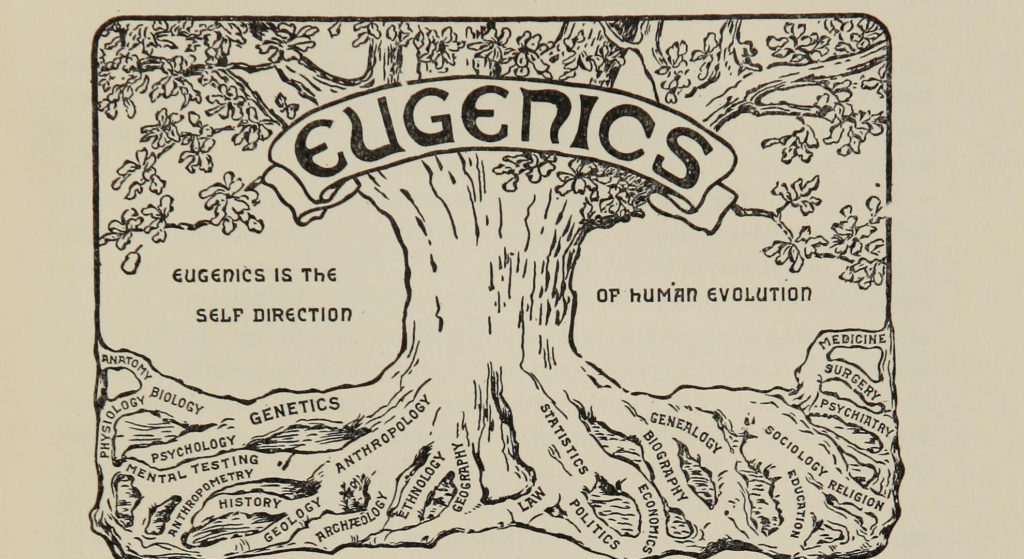
Eugenics
Eugenics was the science of breeding better humans based on Darwinian principles. It was supposed to allow humanity to take control of its own evolution by breeding a better race. In the words of Horatio Hackett Newman, a University of Chicago Zoology Professor, through eugenics “man might control his own evolution and save himself from racial degeneration.” The term itself was coined by Charles Darwin’s cousin Francis Galton. “Positive eugenics” focused on encouraging those deemed the most fit to reproduce more, while “negative eugenics” focused on curtailing reproduction by those deemed unfit, including mental defectives, criminals, and non-whites.
Eugenics was widely embraced by leading evolutionary biologists, doctors, and politicians in the early years of the twentieth century. Promoters of eugenics in America included scientists at Harvard, Princeton, Yale, Columbia, Stanford, the University of Chicago, the National Academy of Sciences, and many other institutions.
For more information:
Darwin Day in America by John G. West (Book)
The Eugenics Archive (Website)
Image Archive on the American Eugenics Movement (Website)
